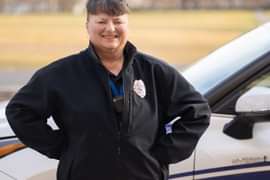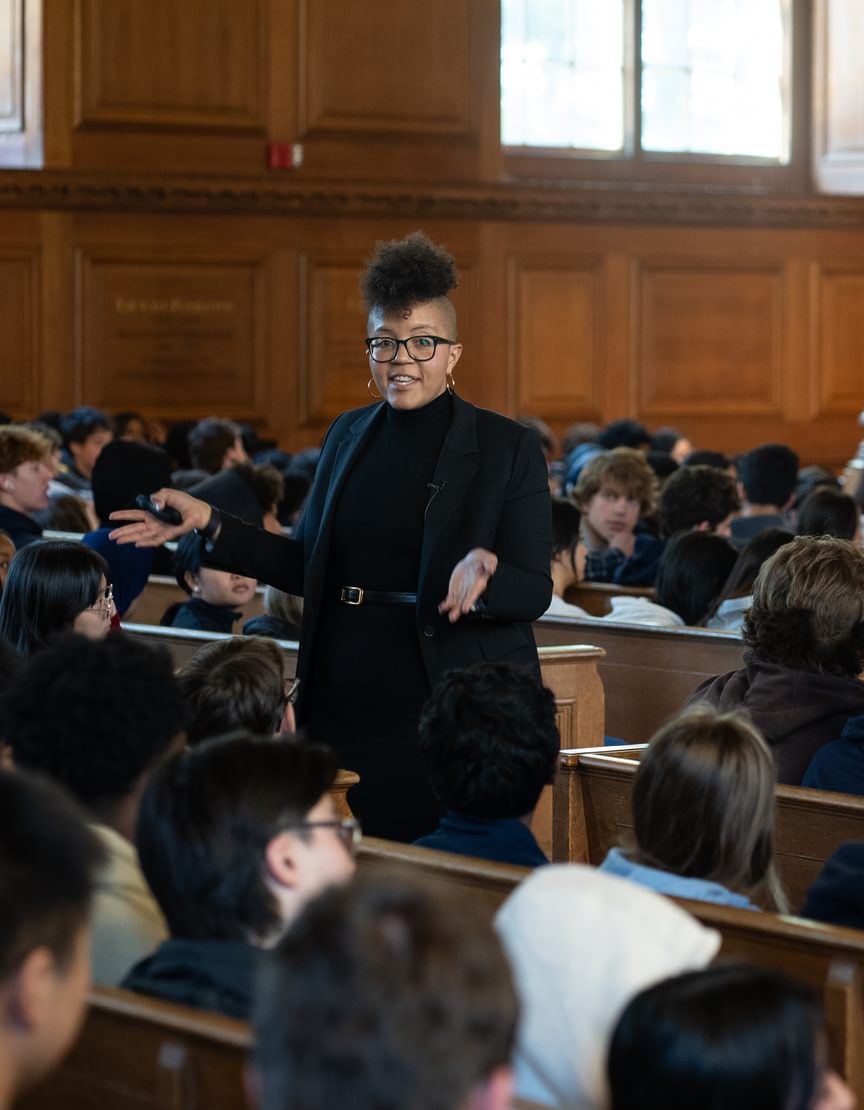
October 28, 2024
Discourse and Democracy
Election season is fertile ground for campus conversationsby Tracy M. Sweet
Issues surrounding the U.S. presidential election have provided a rich platform for conversations across campus this fall. From healthcare to immigration, Supreme Court rulings to presidential immunity, subject matter—and opinions—have been vast. Which is why the Andover community is sharply focused on civil discourse, as both a principle and a practice.
“Engaging in civil discourse is one of our greatest privileges and responsibilities,” Head of School Raynard Kington, MD, PhD, told students. “It can also be challenging to uphold this ideal, especially when society seems captivated by the most extreme viewpoints and loudest voices.”
Fortunately, Andover’s values serve as guideposts during promising and challenging times. The unity of knowledge and goodness calls the community to engage—with people and ideas—with intellectual rigor, humility, and empathy.
Evolving technology, economic volatility, and a global pandemic—our students have seen little stability in their lives. I am grateful that they have this community to lean on, one that embraces new ideas and knowledge to advance society.
”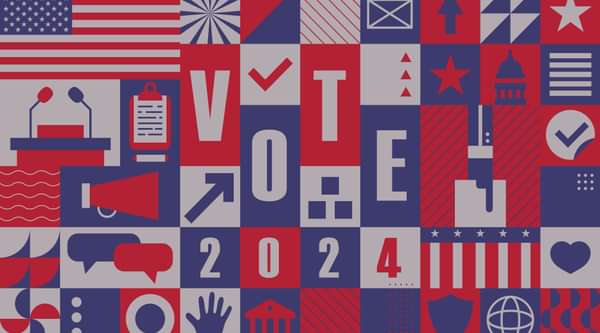 Graphic courtesy iStock Photo.
Graphic courtesy iStock Photo.
Election Day marks an active 24 hours, but recent history has shown that our nation’s struggles may continue long after the polls close. Divisive rhetoric, debate over what is fact and fiction, and malicious actors seem entrenched in society. “I think about the turmoil today’s students have experienced,” Kington added. “Evolving technology, economic volatility, and a global pandemic—our students have seen little stability in their lives. I am grateful that they have this community to lean on, one that embraces new ideas and knowledge to advance society.”
The student-run Andover Political Union is one example of civil discourse in action. These students are attuned to global issues and genuinely interested in examining a range of viewpoints. APU members have held weekly conversations throughout the fall term in a “no-stakes-attached” environment. Read more about the APU’s deep dives into providing a space for students of different political views to come together.
Through the lens of civil discourse, the campus community continues to engage in this election season with a slate of programming:
- Harvard Graduate School of Education’s EdEthics team worked with faculty and staff to prepare for the days preceding and following the election. They brainstormed how to facilitate difficult discussions. They analyzed case studies, role played classroom situations, and explored ways to invite healthy debate without taking sides or revealing personal politics. “With so much uncertainty and heightened emotion surrounding the election, it can be hard to determine when and how to engage with students and colleagues,” said Linda Carter Griffith, assistant head of school for equity, inclusion and wellness. “Our identities and lived experiences affect not only how we think about issues, but also how we react when confronted with a perspective unlike our own.”
- The Tang Institute hosted John Marks ’61 and Amy Kellogg ’83 discussing Marks’s new book From Vision to Action: Remaking the World Through Social Entrepreneurship. Kellogg, a former senior foreign affairs correspondent for Fox News, spoke with Marks about conflict resolution and leadership—highlighting the power of collaboration. Marks founded the peace-building organization Search for Common Ground, which was nominated for the Nobel Peace Prize in 2018.
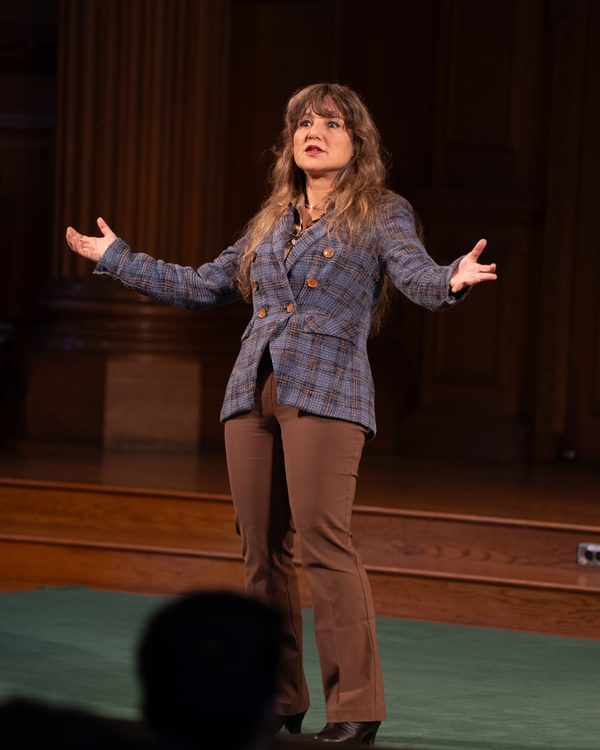 Zeynep Tufekci, professor of sociology and public affairs at Princeton University, at All-School Meeting.
Zeynep Tufekci, professor of sociology and public affairs at Princeton University, at All-School Meeting.
The Presidential Election Speaker Series will wrap up this week with Dr. Kington welcoming Larry Tye for a conversation around public policy and leadership. Tye was a reporter for The Boston Globe from 1986 to 2001 and now runs the Health Coverage Fellowship, which helps train medical journalists to do a better job reporting on critical issues like pandemics, mental health, and high-tech medicine. Tye also authored award-winning books exploring the lives and politics of Senator Joe McCarthy and Senator Robert F. Kennedy.
The series also featured the following scholars, authors, and public policy experts:
- Zeynep Tufekci, professor of sociology and public affairs at Princeton University, spoke about misinformation and social media, engaging with students at All-School Meeting followed by lunchtime Q&A. A techno-sociologist and New York Times columnist, Tufekci’s work is celebrated for its analysis of complex systems. She was also a finalist for the Pulitzer Prize for her insightful commentary on public health and technology.
- Neil Siegel, professor of law and political science at Duke University, joined English department chair Leo Calleja for a conversation on the U.S. Supreme Court, the U.S. Constitution, and presidential immunity.
- Francisco Cantú joined students and campus adults for a conversation on immigration policy and politics. Cantú is an American author and Spanish-to-English translator who served as a U.S. Border Patrol agent from 2008 to 2012. His book The Line Becomes a River: Dispatches from the Border was published in 2018.
- All-School Meeting with political writer Jane Coaston featured a lively discussion on change-making and the challenge of separating personal identity from politics and policy matters. Coaston hosts “The Argument” podcast and writes for The New York Times. Previously, she was the senior politics reporter at Vox Media, focusing on conservatism and the GOP.
Categories: Leadership
Other Stories
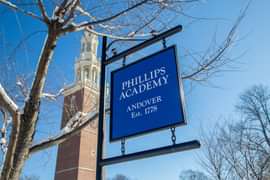
Andover’s 10th conference promotes open financial dialogue




